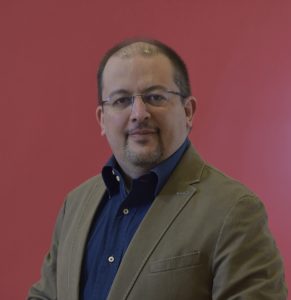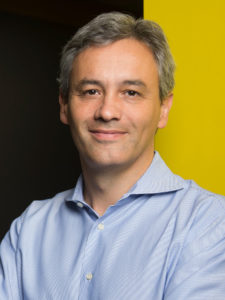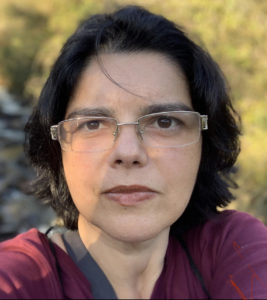Keynote 1: Prof. Fabrizio Granelli (University of Trento, Italy)
Energy efficient networks & computing at the network edge
Parati 1+2+3, Wednesday, November 30, 2022 – 14:30-16:00 (BRT)
In recent years, the network edge has attracted wide interest from the scientific and industrial community in communications. Indeed, implementing micro-services at the network edge seems to offer an additional and welcome degree of freedom in the delivery of modern services, allowing to reduce latency, support high reliability and location awareness. While the enthusiasm on the subject enabled the already implemented proof-of-concepts of this paradigm, further investigation is still required to better understand the feasibility and scalability of edge solutions, especially in terms of energy efficiency. This keynote will briefly introduce the building blocks required to understand the concept of the network edge, including Software Defined Networking and Network Function Virtualization. Then, the ETSI Multi-Access Edge Computing standard will be introduced as the reference architecture for service deployment at the edge. Finally, energy-efficient networking and computing concepts and challenges will be analyzed for this interesting scenario.
Short Bio
Fabrizio Granelli is Full Professor at the Dept. of Information Engineering and Computer Science (DISI) of the University of Trento (Italy). He received the «Laurea» (M.Sc.) and Ph.D. degree from the University of Genoa, Italy, in 1997 and 2001, respectively. He was visiting professor at the State University of Campinas (Brasil) and in 2016 he was visiting professor at the University of Tokyo (Japan). He was IEEE ComSoc Distinguished Lecturer for the period 2012-15 and 2021-22 (3 terms), ComSoc Director for Online Content in 2016-17, Delegate for Education at DISI in 2015-2017, IEEE ComSoc Director for Educational Services (2018-19) and IEEE ComSoc Director for Conference Development (2022-23). Prof. Granelli was General Chair or TPC Chair of several prestigious IEEE conferences, such as IEEE Globecom, IEEE NFV-SDN, and IEEE CAMAD, and chaired several symposia at IEEE ICC and Globecom. He is the Founding Chair of the Aerial Communication Emerging Technology Initiative of IEEE Communications Society and Chair of the IEEE P1954 Standard Working Group.
Keynote 2: Prof. Israat Haque (Dalhousie University, Canada)
Innovating in computer networks one data-plane program at a time
Parati 1+2+3, Thursday, December 1, 2022 – 9:30-11:00 (BRT)
Short Bio
Dr. Israat Haque is an Associate Professor in the Faculty of Computer Science at Dalhousie University, where she leads the Programmable and Intelligent Networking (PINet) Lab. She works in the areas of Software-Defined Networking (SDN) and the Internet of Things (IoT) focused on the performance, security, and reliability aspects of wired and wireless networked systems. She is also interested in applying data-driven approaches to solve practical and relevant networking problems. Dr. Haque received her Ph.D. degree from the Department of Computing Science at the University of Alberta. Subsequently, she held an NSERC post-doctoral position at the Department of Computer Science and Engineering at the University of California, Riverside, before joining Dalhousie University. She served as an area editor of the IEEE Transactions on Vehicular Technology and is currently an Editor of the Internet of Things Series of the IEEE Communications Magazine (ComMag). Dr. Haque also actively participates in organizing and technical program committees of conferences like IEEE ICNP, IEEE CloudNet, IFIP Networking, IEEE NetSoft, IEEE CNSM, IEEE ICC, IEEE Globecom, etc.
Keynote 3: Prof. Tommaso Melodia (Northeastern University, USA)
AI-based Control and Orchestration in the Open RAN: Architectures, Algorithms, Testbeds
Parati 1+2+3, Thursday, December 1, 2022 – 14:30-16:00 (BRT)
This talk will present an overview of our work on laying the basic principles to design open, programmable, AI-driven, and virtualized next-generation wireless networks. We will cover in detail challenges and opportunities associated with the evolution of cellular systems into cloud-native softwarized architectures enabling fine grained control of end-to-end functionalities.
Short Bio
Tommaso Melodia is the William Lincoln Smith Professor with the Department of Electrical and Computer Engineering at Northeastern University in Boston. He is also the Founding Director of the Institute for the Wireless Internet of Things and the Director of Research for the PAWR Project Office. He received his Laurea (integrated BS and MS) from the University of Rome – La Sapienza and his Ph.D. in Electrical and Computer Engineering from the Georgia Institute of Technology in 2007. He is an IEEE Fellow and recipient ofthe National Science Foundation CAREER award. Prof. Melodia is serving as Editor in Chief for Computer Networks. Prof. Melodia is a co-founder of 6G Symposium, and was the Technical Program Committee Chair for IEEE Infocom 2018, and General Chair for ACM MobiHoc 2020, IEEE SECON 2019. Prof. Melodia’s research is funded by US industry and a number of Federal agencies including the US National Science Foundation, the Office of the Undersecretary of Defense, Air Force Research Laboratory, the Office of Naval Research, DARPA, the the Army Research Laboratory, the Department of Transportation, IARPA, and NASA. He is the author or co-author of more than 250 papers published in international journals, books, and conferences. He is Associate Editor in Chief of IEEE Communications Surveys and Tutorials, and Senior Editor of the IEEE Transactions on Green Communications and Networking.
Keynote 4: Prof. Jussara Almeida (UFMG, Brazil)
Misinformation on the Web: Fighting our own demons
Parati 1+2+3, Friday, December 2, 2022 – 9:30-11:00 (BRT)
Misinformation on the Web: Fighting our Despite several efforts to detect and fight misinformation online, campaigns of fake news dissemination, particularly on social media platforms, remain a problem with a large impact on society. We argue that in order to design effective solutions to fight such practice it is of paramount importance to understand (analyze and model) how information is propagated in the Web, often crossing the boundaries of specific platforms and reaching large audiences. In this talk, I will discuss some of the main challenges to fight misinformation online and present recent findings from our research group on the analysis of the spread of fake news on WhatsApp. Our results address aspects related to content, propagation dynamics and the information dissemination network, as well as characteristics of those users who most often contribute to the spread of misinformation on the platform demons.
Short Bio
Jussara M Almeida is a CNPq Research Productivity Scholar (level 1C), with expertise in the area of workload and user behavior characterization, performance analysis and modeling of large-scale distributed systems, and social computing. Jussara was an affiliate member of the Brazilian Academy of Sciences and currently leads the Social Computing Laboratory (LOCUS) at the Department of Computer Science of /UFMG, conducting research in the areas of information dissemination (including disinformation), human and social behavior modeling and recommender systems design.






